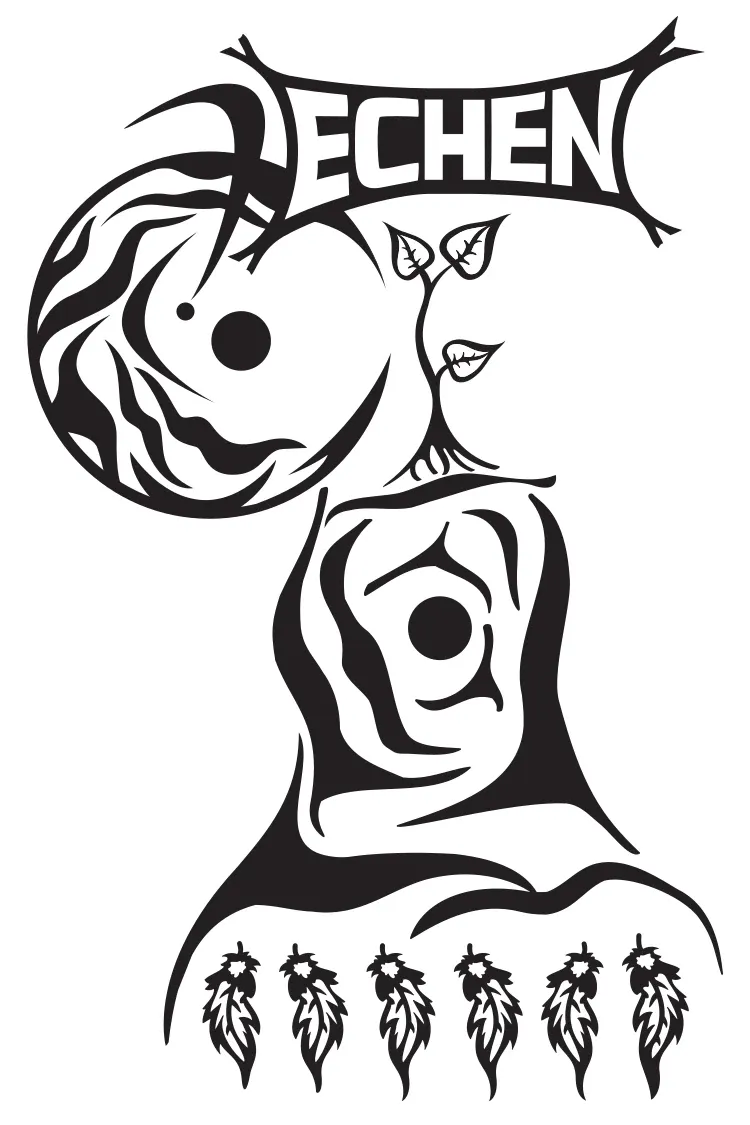Kolten's Eternal
Legacy Safe Haven
Echen Healing Society

Project Description:
Kolten’s Eternal Legacy Safe Haven is a future community-driven initiative in Quesnel, BC. Our mission is twofold: to create an emergency shelter for individuals experiencing homelessness and to honor the memory of your nephew, Kolten George Stump. The shelter will feature Indigenous art, offer traditional teachings, and encourage the use of Indigenous language. Nutritious meals, laundry services, and showers will be provided, all while embracing harm reduction principles.
Project Objectives:
PROVIDE SAFE SHELTER
Our primary objective is to establish a safe and welcoming emergency shelter for individuals experiencing homelessness in Quesnel. We aim to offer approximately 30 beds, ensuring a warm and secure environment where everyone feels respected and valued.
CULTURAL EMPOWERMENT
Our second objective is to honor Kolten’s memory by infusing cultural elements into the shelter. Through Indigenous art, language, teachings, and ceremonies, we will create a space that celebrates cultural identity, resilience, and healing.
Scope of Work:
TRAINING
Cultural competency training: Staff should receive training on understanding diverse backgrounds, respecting cultural norms, and communicating effectively.
- Emergency Shelter Training
- Harm Reduction Training
INCLUSIVENESS
- Consider gender-specific areas
- Culturally relevant artwork
- Cultural Activities Workshops on cultural traditions, history, and customs can be valuable. Inviting community members to share their knowledge can also enrich the experience.
- Offer diverse meal options Respect fasting practices during religious observances.
- These elements create a welcoming atmosphere and accommodate indigenous culture.
- Interpreters to assist non-English speakers. Additionally, offer written materials in multiple languages to enhance communication.
Key Stakeholders and Roles:
TEAM MEMBERS
Project Manager
- Oversees the project, ensuring it stays on track and meets its goals.
Cultural Liaison
- Ensures cultural teachings are accurately represented and integrated.
Shelter Staff
- Includes social workers, counselors, and support staff who manage daily operations.
Board of Directors:
- They are responsible for monitoring the shelter’s financial health, overseeing budgeting, fundraising efforts, and the proper utilization of resources to maintain financial stability and sustainability. Additionally, the board establishes policies that guide the shelter’s operations, covering areas such as resident care, safety protocols, and ethical standards, ensuring consistency and compliance.
- Board members are also involved in hiring and evaluating the shelter’s executive director, who manages day-to-day operations, ensuring their performance aligns with organizational goals. They actively engage in fundraising efforts and advocate for the shelter within the community, seeking support from donors, sponsors, and other stakeholders. Regular assessments are conducted by the board to evaluate the shelter’s performance, making adjustments based on feedback and data to improve services and outcomes.
- Culturally, the board ensures that the shelter’s services are inclusive and respectful of the diverse backgrounds of the community it serves. They strive to create an environment that is welcoming and supportive for all individuals, recognizing and valuing cultural differences and promoting equity and inclusion in all aspects of the shelter’s operations.
Timeline:
PHASE I
Planning and Preparation
- Consult with local Indigenous leaders, Elders, and community members to understand their perspectives and needs.
- Conduct a comprehensive needs assessment to identify the specific requirements of the homeless population in Quesnel.
- Engage with local authorities, community organizations, and residents to gather support and input.
- Form partnerships with local Indigenous organizations and governing bodies to collaborate on the planning and implementation process.
- Develop and implement policies that promote cultural safety within the shelter, ensuring that Indigenous residents feel respected and included.
Site and Design
- Identify a suitable location for the shelter, considering accessibility, safety, and proximity to other services
- Develop architectural plans and layout, ensuring the design includes emergency beds, transitional housing units, and support facilities
Funding and Partnerships
- Secure funding from BC Housing, Northern Health Authority, local businesses, and individual donations
- Form partnerships with local non-profits, businesses, and government agencies to pool resources and expertise
PHASE II
Permits and Compliance
- Obtain necessary permits and ensure the shelter meets all local building codes
- Address any environmental or zoning concerns.
Construction
- Begin renovation of the selected site, ensuring minimal disruption to the community.
- Involve Indigenous communities in the design phase to ensure the shelter reflects their cultural values and practices.
- Incorporate spaces within the shelter for cultural practices, such as areas for smudging ceremonies or traditional gatherings.
- Regularly monitor progress and address any issues promptly.
Staff Recruitment and Training
- Recruit staff and volunteers with experience in social services, mental health, and substance use support.
- complement cultural training programs to ensure staff are equipped to provide culturally sensitive care.
PHASE III
Final Setup and Inspection
- Complete the final setup of the shelter, including furnishing and equipping the facility.
- Conduct thorough inspections to ensure everything is in place and meets safety standards.
Staff Training and Orientation
- Provide comprehensive training for staff on shelter operations, trauma-informed care, and harm reduction principles. This training should cover the history, values, and traditions of local Indigenous communities.
- Organize workshops and seminars led by Indigenous trainers to enhance understanding and respect for cultural differences.
- Host cultural events and activities within the shelter to celebrate and honor Indigenous traditions
- Conduct cultural competency training to enhance staff’s ability to work effectively with diverse populations.
Service Integration
- Integrate services such as case management, health support, and harm reduction supplies into the shelter’s operations.
- Establish partnerships with local health and social service providers to offer comprehensive support to shelter residents.
- Hold regular meetings with Indigenous communities to update them on progress and gather feedback
PHASE IV
Shelter Opening
- Officially open the shelter and begin admitting residents
- Host an opening event to raise awareness and engage the community.
Ongoing Monitoring and Evaluation
- Conduct regular assessments to monitor the shelter’s effectiveness and make necessary adjustments
- Establish feedback channels for shelter residents and staff to continuously improve services
Sustainability and Expansion
- Develop a sustainable funding model through grants, donations, and government support to ensure the stability of shelter programs
- Plan for future expansion to accommodate growing needs and enhance services
Resources Needed
TRAINING COSTS
Cultural Competency Training Program: $5,000
(Includes materials, trainers’ fees, and venue costs; up to 35 people can take this.)
- Trauma-Informed Care Training: $9,000
- Covers training materials, trainers’ fees, and venue costs up to 35 people can take this.
- Ongoing Professional Development: $3,000
- For continuous learning opportunities and workshops
Staff Costs
- Training Stipends for Staff: $4,000
- Compensation for staff time spent in training sessions.
- Travel and Accommodation: $1,500
- For trainers and staff attending off-site training.
Miscellaneous Costs
- Training Materials and Supplies: $1,000
- Includes books, handouts, and other resources.
- Catering and Refreshments: $1,000
- For training sessions.
Total Training Budget: $24,500
BUDGET FOR WRITING A NEEDS ASSESSMENT
Consultant Fees
- Needs Assessment Consultant: $7,500
- For conducting surveys, interviews, and data analysis
Data Collection Costs
- Survey Tools and Software: $1,000
- For online surveys and data collection.
- Printing and Distribution: $500
- For physical surveys and materials.
Community Engagement
- Focus Groups and Community Meetings: $2,000
- Includes venue rental, refreshments, and facilitation fees.
Report Preparation
- Writing and Editing: $2,000
- For drafting, reviewing, and finalizing the report.
- Design and Printing: $1,000
- For professional design and printing of the final report.
Total Needs Assessment Budget: $16,500
BUDGET FOR CREATING AN OPERATIONAL PLAN
Consultant Fees
- Operational Plan Consultant: $8,000
- For developing the operational plan, including staffing, services, and logistics
Workshops and Meetings
- Planning Workshops: $2,000
- Includes venue rental, materials, and facilitation fees.
- Stakeholder Meetings: $1,500
- For engaging with stakeholders and gathering input
Documentation and Printing
- Drafting and Editing: $1,500
- For writing and refining the operational plan
- Printing and Distribution: $1,000
- For producing copies of the operational plan.
Total Operational Plan Budget: $13,500
BUDGET FOR ARCHITECT FOR FLOOR PLAN AND USE OF EXISTING SPACE
Architect Fees: I FIND VERY IMPORTANT SO WE CAN UTILIZE AS MUCH SPACE AS POSSIBLE WITHOUT FEELING CROWDED AND ALSO BUILD AS SPACE FOR SHOWERS AND LAUNDRY
- Architectural Design Services: $15,000
- For creating floor plans and optimizing the use of existing space.
Site Visits and Assessments
- Site Visits: $2,000
- For on-site assessments and consultations.
Drafting and Revisions
- Initial Drafting: $3,000
- For initial floor plan drafts.
- Revisions and Finalization: $2,000
- For making revisions based on feedback and finalizing plans
Miscellaneous Costs
- Permits and Compliance: $1,500
- For obtaining necessary permits and ensuring compliance with local regulations
Total Architect Budget: $23,500
SUMMARY OF TOTAL BUDGETS
Training for Staff: $24,500
Needs Assessment: $16,500
Operational Plan: $13,500
Architectural Services: $23,500
Grand Total: $78,000
These budgets provide a comprehensive overview of the costs involved in training staff, conducting a needs assessment, creating an operational plan, and hiring an architect for the emergency shelter project in Quesnel. If you need further details or adjustments, feel free to call me at (250)992-0614 or by cell (250)682-0614
